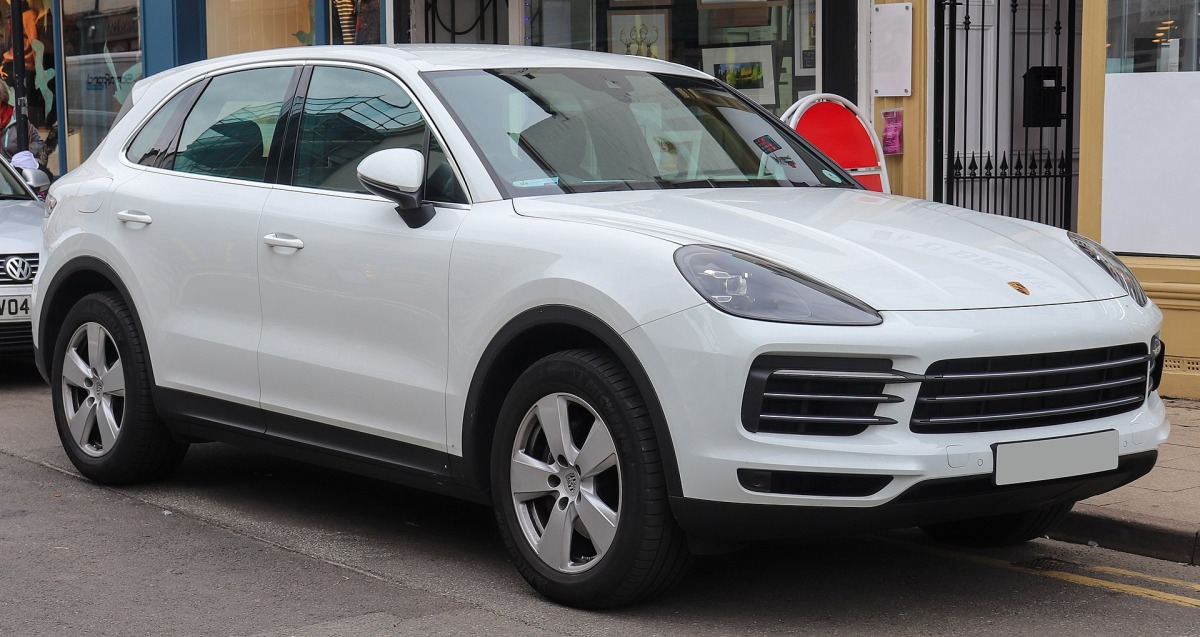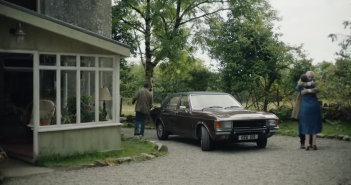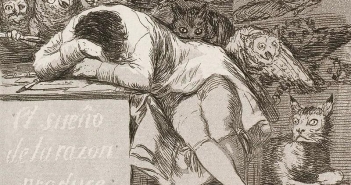This article has been gestating for some time. I must admit to a long-standing loathing for cars. Far from mellowing, this hatred has only escalated with the passage of time.
Into my mid-fifties, I still recall over thirty years ago when I was working as a kitchen porter in a family-run restaurant in one of the suburbs west of Paris, awaiting a lift from my then father-in-law. and actually hurling insults at the espace des boites en métal sur quatre roue!
So, where is this anger coming from? What’s up? Well, as the title of this piece suggests, the SUV has become symbolic, for me anyway, of many of the fundamental ills of the Western world.
In the relatively wealthy enclave in north county Dublin I have lived for the last decade or more, the SUV is the ultimate symbol of middle class affluence.
I grew up with them. Indeed I remember their origins. The Range Rover dates from the 1970s when British Leyland unrolled them and they were pretty utilitarian in design and generally, as four-by-four vehicles, designed for multi-terrain or cross-terrain purposes.
So, farmers and builders and other rustic types would have been the first customers, but as the vehicles grew in popularity, second generation models began appearing from the 1990s, targeting high-end users such as the Sloan Rangers in London, named after Sloan Square, an affluent part of London where the horsey types in jodhpurs and boots became a social phenomenon.
In an irreverent new poem Peter O'Neill commutes, (or is it communes?), with Baudelaire as he resists a gentlemanly impulse to offer up his seat.https://t.co/f7oiO2Suby@danwadewriter @danieleidiniph1 @BenPantrey @BowesChay @IlsaCarter1
— CassandraVoices (@VoicesCassandra) January 12, 2023
Going from agrarian utility to gender and empowerment, you see how these vehicles are symbolically so charged as to be of interest to anyone who wishes to cast a critical eye on contemporary society!
Of course, the military element is also there, as the SUV stems from the jeep, which had such iconic status in both World War II and the Vietnam War. And here we come to the crux of the matter: might is right! When you are sitting up in an SUV, you command the road. Particularly the fifth-generation types that you see on the roads today, and which are so vulgar in their display of wealth.
I am thinking especially of the polar white coloured models with so much chrome and bling that you generally associate them with red-carpet type celebrities. Every wannabe designer or football wife now seems to be sitting inside one, suitably suited and jack booted, with god- knows what lying in her trunk(s)?
So, it’s a metaphor for ostentatious living, opulence and success. So much so that if you wish to appear to be successful you need to have one of these sleekly curved, designer beasts if you really wish to assert your societal success.
This is how shallow life has become in the West, and it has been that way since the 1980s. Of course, we haven’t even brought in the themes of the energy crisis and the environment yet! All evoked by the same means of transport…
Peter O'Neill immediately twitch with an almost intolerable discomfort when he hears the words freedom and equality. He bemoans the effect on arts festivals.https://t.co/9OQQBjYNmR@danwadewriter @KevinHIpoet1967 @BowesChay @BenPantrey @danieleidiniph1
— CassandraVoices (@VoicesCassandra) November 17, 2022
As a writer, and poet particularly, metaphors are what I need to traffic in. And when I think of today, and the era that we are living through, going back the last thirty or so years, I am also reminded of how literal we have become in our expressions.
Take the world of poetry. In a realm where you would imagine metaphor to be found in abundance, you literally could not be further from the truth, as it is mostly Spoken Word these days. What the hell does that even mean?
We have become literally so literal, in other words, so lacking in metaphorical thinking, that we literally can’t even think in metaphorical terms any longer. Hence the appalling state of poetry at the moment, particularly in this c(o)untry where Spoken Word poets are more dominant than any other kind of beast!
When I think of a master of metaphor, I have to go back to Beckett which, again, like the Range Rover, was still around during the 1980s. His whole world of tramps, hats, dustbins and solitary trees; in that constellation of metaphors, I can see the whole post World War II years. Beckett could only have come out of the total ruins of a global conflict that resulted in the deaths of over sixty million people.
It’s all there contained in his metaphors. As Hugh Kenner was to point out, Waiting for Godot was both directly and indirectly inspired by Beckett’s only flight with Susanne from Paris, when the Gestapo were quite literally looking for the two of them and they both had to, quite literally, hide by sleeping rough or finding lodgings.
The play, which became synonymous with post-war Europe, having been born from very real vagrancy and all of the anguish that might come from such a tenuous life; the couple hid out for the remainder of the war in Roussillon.
Two other poets, masters of metaphor, were of course Seamus Heaney and Ted Hughes. The former employed bog bodies, while the latter adopted the crow, but when compared to the bleak visions of Beckett, in sheer terms of metaphoric power, any one can see that the Sage of Foxrock far out-does them.
Perhaps one of the greatest examples of the stupidity of our current predicament, a predicament which now sees us in direct conflict with the great powers of the East, who see how weak we have become, is perhaps the famous ‘End of History’ phrase used by Francis Fukuyama in 1992.
Here we can identify, at the end of the Cold War, the collective West’s deluded belief in its omnipotence. This we should remember was a period of unparalleled wealth, which finally gave way in 2008 to a global downturn that was really the culmination of corporate greed, of which the SUV is now the best metaphor for.
"Be not fraught with the weight and trouble of your servitude, but rather cherish the day and be more aware of it harbouring amplitude." Sound advice…https://t.co/sALZWmHdhg@danwadewriter @danieleidiniph1 @BenPantrey
— CassandraVoices (@VoicesCassandra) March 21, 2023
In the figure of Fukuyama, we can see, again quite literally, how literal people were thinking. Even historians. Whatever happened to the philosopher historians, a dead breed that included Jean Baudrillard, Michel Foucault, Friedrich Hegel and Giambattista Vico? These were metaphorical thinkers who could imagine history as another idiom and thereby create metaphoric space in which to speculate on the nature of history and origins.
Vico, with his three ages of man theory, would have declared, no doubt, that the period we are now living through in the West is in the third age, when society, as we know it has peaked.
In architectural terms, think of the Corinthian columns, which resemble great flowering heads spilling out in opulent abundance, which is a natural phenomenon. Compare them then to the spartan simplicity of the Ionic and Dorian column.
The Corinthians were a civilisation in excess. Apparently, their columns heralded a demise. Only the metaphor remains, and, of course, the ruined columns!
To return now to the SUV. The sports utility vehicle. I only have to look out my apartment window here to see one. There it is, parked glistening in the sun, awaiting its bold glamazon.
My wife (she drives a Fiat Panda, so a mini one) has often remarked on how the very worst drivers tend to be the women who drive SUVs, as they are generally so contemptuous of everyone.
Might is Right, remember! Fuck You! They seem to say just by merely being; both driver now and vehicle. And, this is a sign for us to emulate, as a society! These are the values that we have now been brought up to revere! The Fuck You arrogance of absolute veneer.
It’s funny, when I was last rereading Thomas Kinsella’s The Táin I was struck immediately by the brash vulgarity of the local Irish princes and princesses. Merely substitute the SUVs for their chariots, and you find the same vulgar trappings of power and wealth.
The Táin is an old work apparently first originating in the first century AD, yet the manuscript dates from the twelfth century. We need, it seems to me, fresher chronicles. Fresher metaphors, more room to breath. What a culture; Spoken Word and SUVs, my arse!




